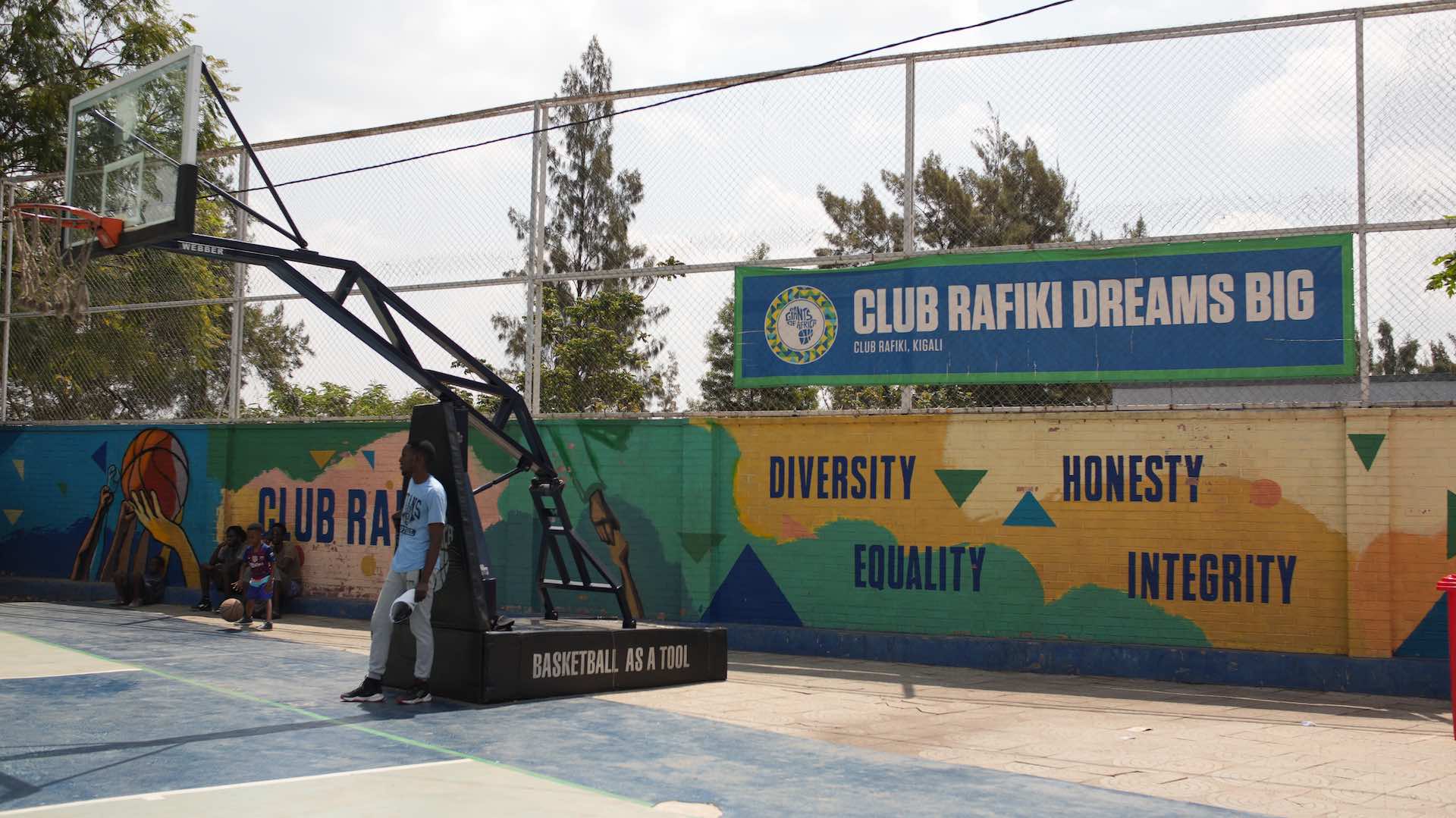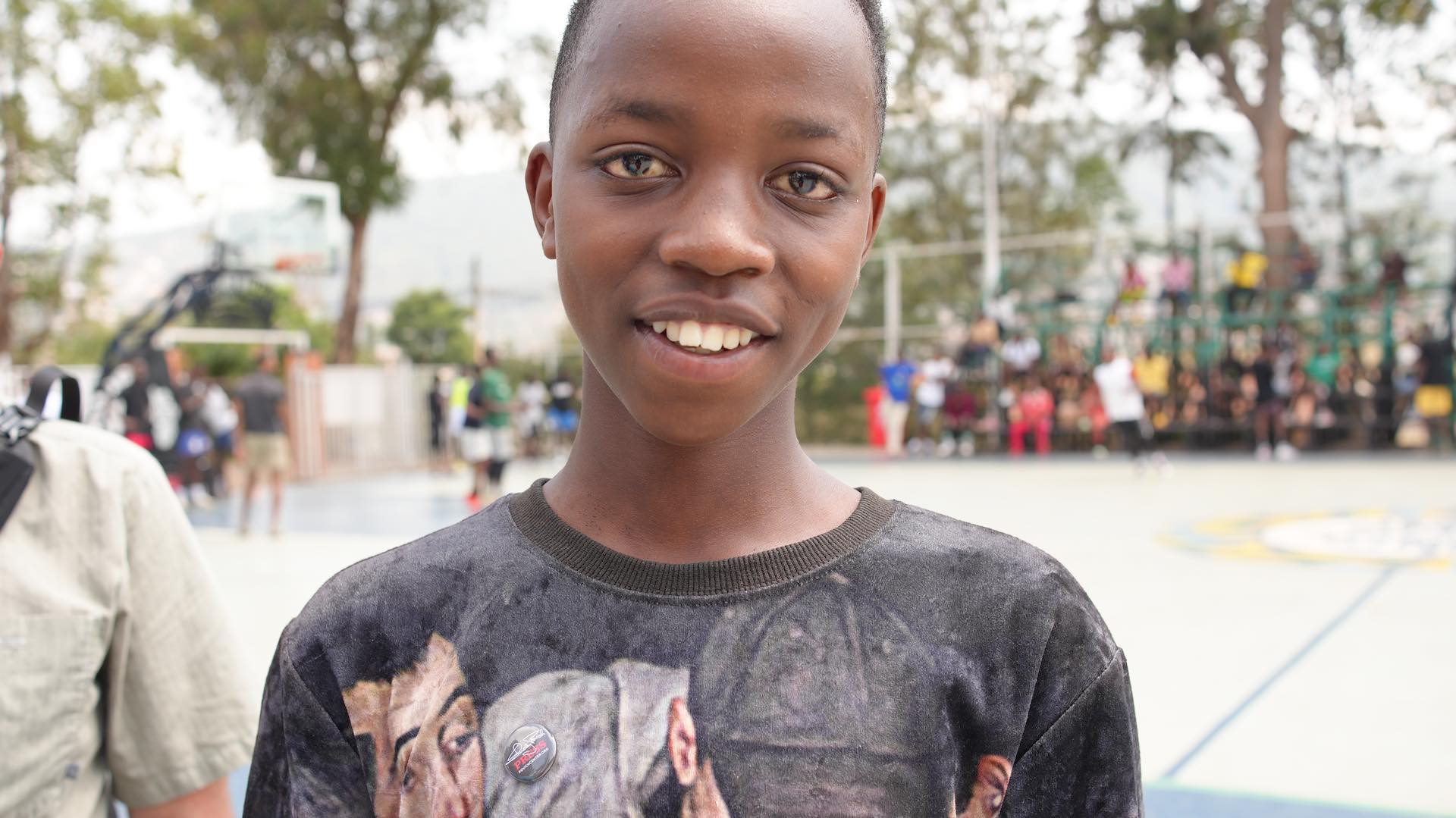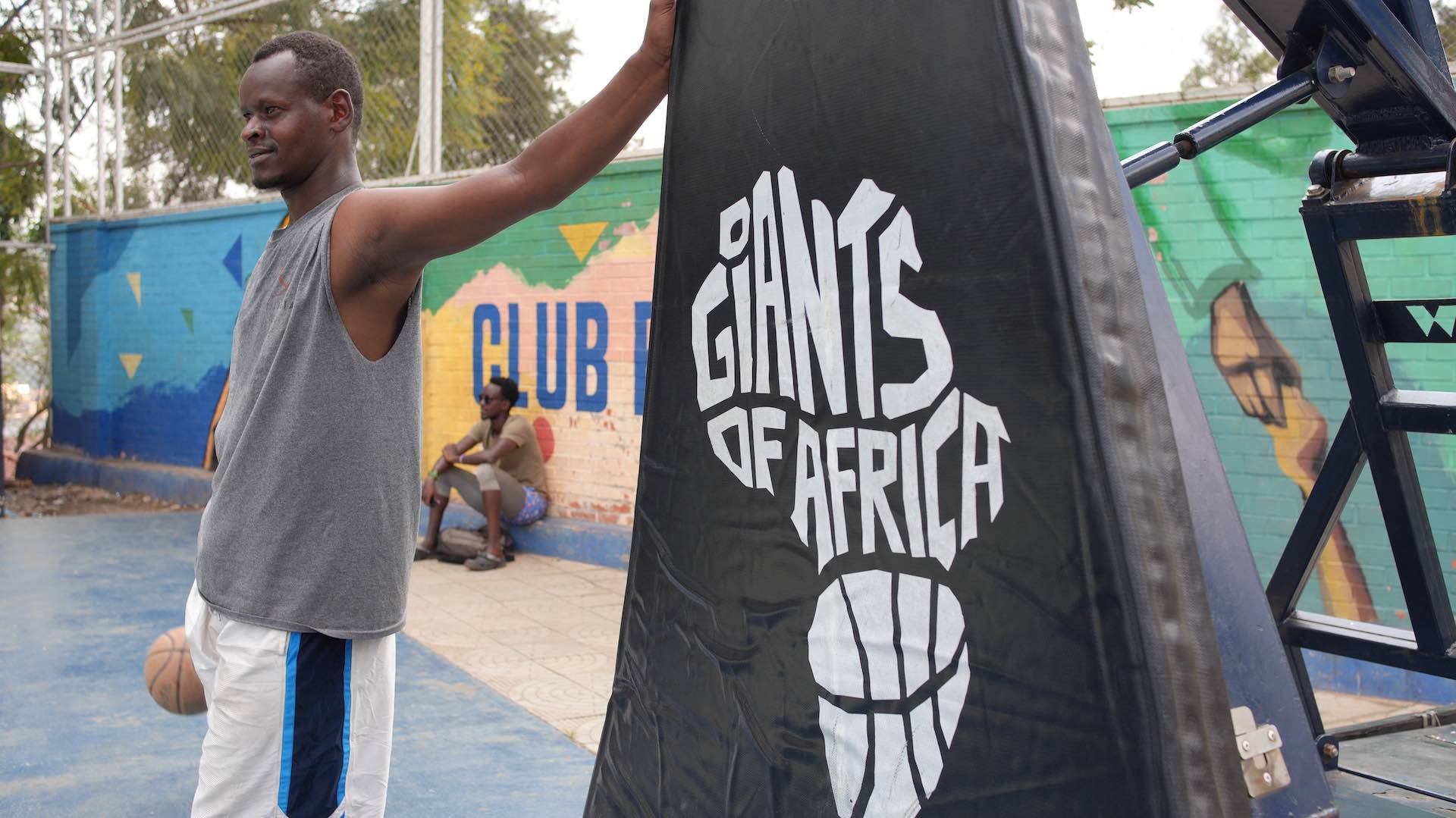KIGALI, Rwanda — On a pleasant June morning with the sun peeking behind the Rwandan clouds, two basketball courts tucked away from the bustling Kigali streets offer a brief respite.
Enclosed by murals, trees and a chain-link fence, Club Rafiki courts are filled with more than 60 people on a Sunday morning. The four baskets serve as an impromptu age divider: young children play on the court with no nets; older players compete on the other side.

This year marks the club’s 50th anniversary. It has survived a genocide and a pandemic. The outdoor basketball court was established in 2022 by Giants of Africa, a nonprofit organization aiming to build 100 accessible basketball courts in Africa. Toronto Raptors president Masai Ujiri co-founded the organization and was in Rwanda during the Basketball Africa League (BAL) championship weekend.
It’s free to use and is in a central part of Rwanda’s capital. The court rarely empties.
“At home, I’m shy. When I play basketball here, I feel good,” Chris Sherma, a 13-year-old local basketball player, said.
But Club Rafiki is an outlier. The popularity of basketball has skyrocketed in Africa and Rwanda, throughout the past decade. The BAL final in Rwanda brought the focus of the international basketball world onto the growth of the game in Africa. But accessibility to the sport still lags behind its growing interest.
“That’s one of the challenges we’ve been trying to tackle,” Zephanie Niyonkuru, permanent secretary of the Rwanda Ministry of Sports, said. “Making sure that we build courts, working with the local government. So infrastructure is the number one [challenge].”

Basketball courts were sparse in Africa a decade ago. A 2022 Taiyuan University of Technology study revealed that 39% of Rwandan respondents were dissatisfied with the current basketball infrastructure in secondary schools.
“In Africa, it’s almost impossible to find a good indoor basketball court,” Chris Ramsay, a member of Africa Outreach USA, said.
Multiple sources, including former NBA players Ian Mahinmi and Festus Ezeli, also said infrastructure was the biggest barrier the sport faced in Africa.
The Taiyuan University researchers acknowledged the survey’s respondents likely live in urban areas, due to the challenges of surveying rural homes in Rwanda. Courts are even sparser in rural areas. The lack of structures makes it even more challenging for Rwandans outside of the nation’s capital, Kigali, to compete in basketball.
“There’s not many places like [Club Rafiki] in rural places,” local basketball player Shami Maridadi said. “It’s tough for them. … Those in rural places, I don’t think there’s much.”
Niyonkuru said there are sectors, which are divisions of Rwanda’s 30 districts, without a basketball court. There is a “massive” concentration of courts in urban areas, he said.
To combat that, the department provided funding to local governments across the country in order to build courts in rural areas. Niyonkuru said the Rwanda government would need to have 2,000 additional courts across the country to fit the need. He called it a crazy number.
But interest in basketball is booming.
At the Club Rafiki Courts, popular basketball shoe models such as Nike’s Lebron James and Kobe Bryant, Under Armour’s Stephen Curry and Adidas James Harden line the feet of children.
Daniel, an 18-year-old boy, said his family saved money to buy basketball shoes. He said he plays basketball three times a week at Club Rafiki.
“It’s a safe place for people to come,” he said.
It wasn’t always that way.
Longtime Club Rafiki visitor, Bizab Bizimana, 44, said a lot of fights broke out at Club Rafiki’s indoor courts in the 1980s. He said oftentimes, there would be two basketballs to share amongst more than 100 people. The court wasn’t a place to play basketball, rather a social area.
“Now, you can tell that everyone who is here wants to play basketball,” Bizimana said.
There has never been an NBA player from Rwanda. The government is aware of that and is attempting to increase courts and grassroots. It will take time, though.

“The basketball infrastructure is on the rise for sure, but it’s not close to where soccer would be. Or where it might be in Eastern Europe or even South America,” Ramsay said.
It’s the crowning message of Club Rafiki. At the back of the court, stretched across the fence for all players to see, a blue banner hangs. It reads: Club Rafiki Dreams Big.

You must be logged in to post a comment.